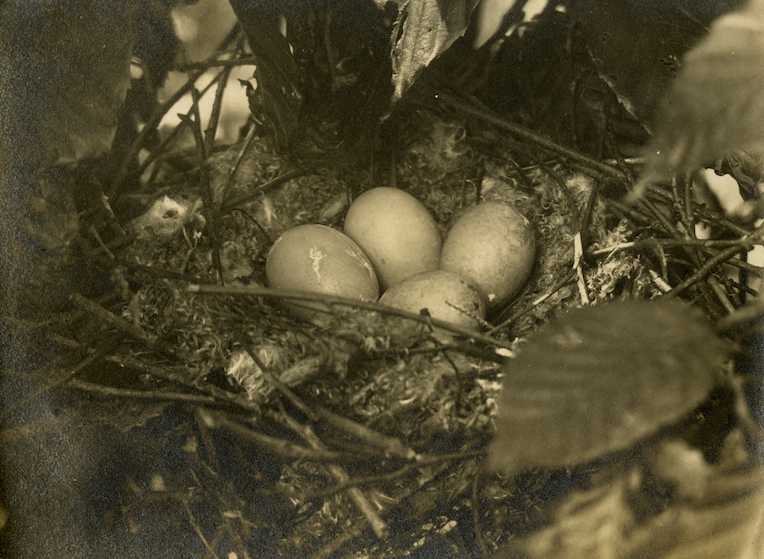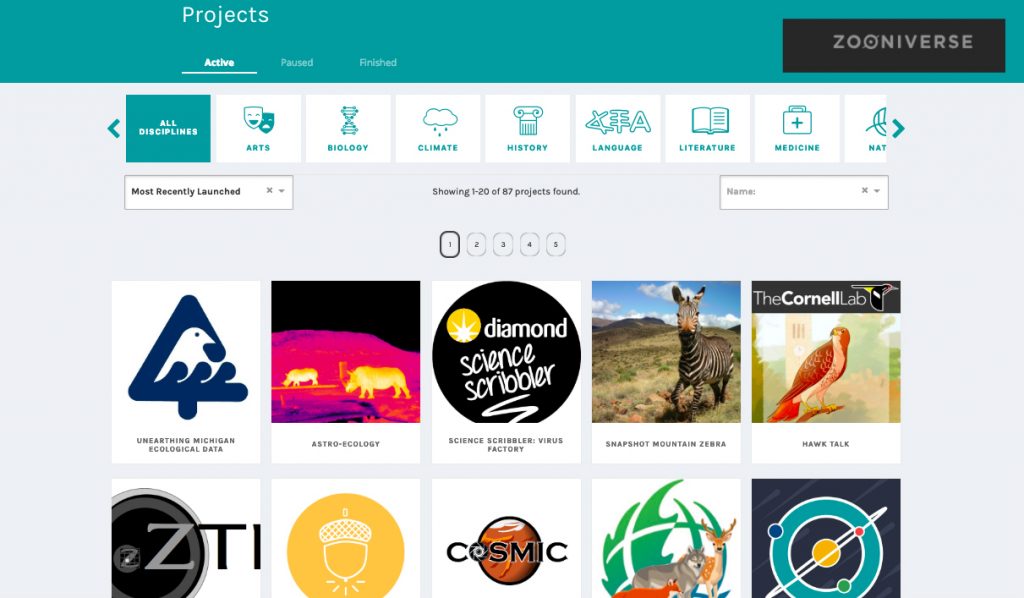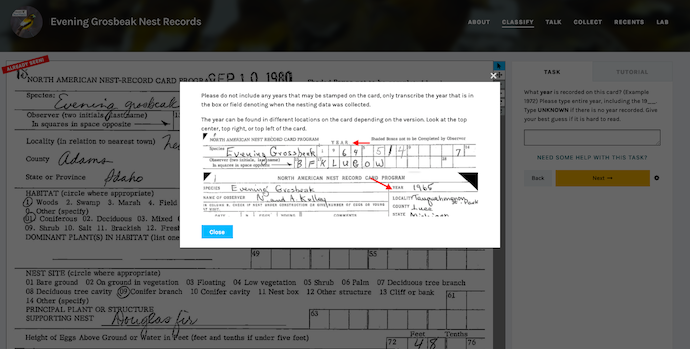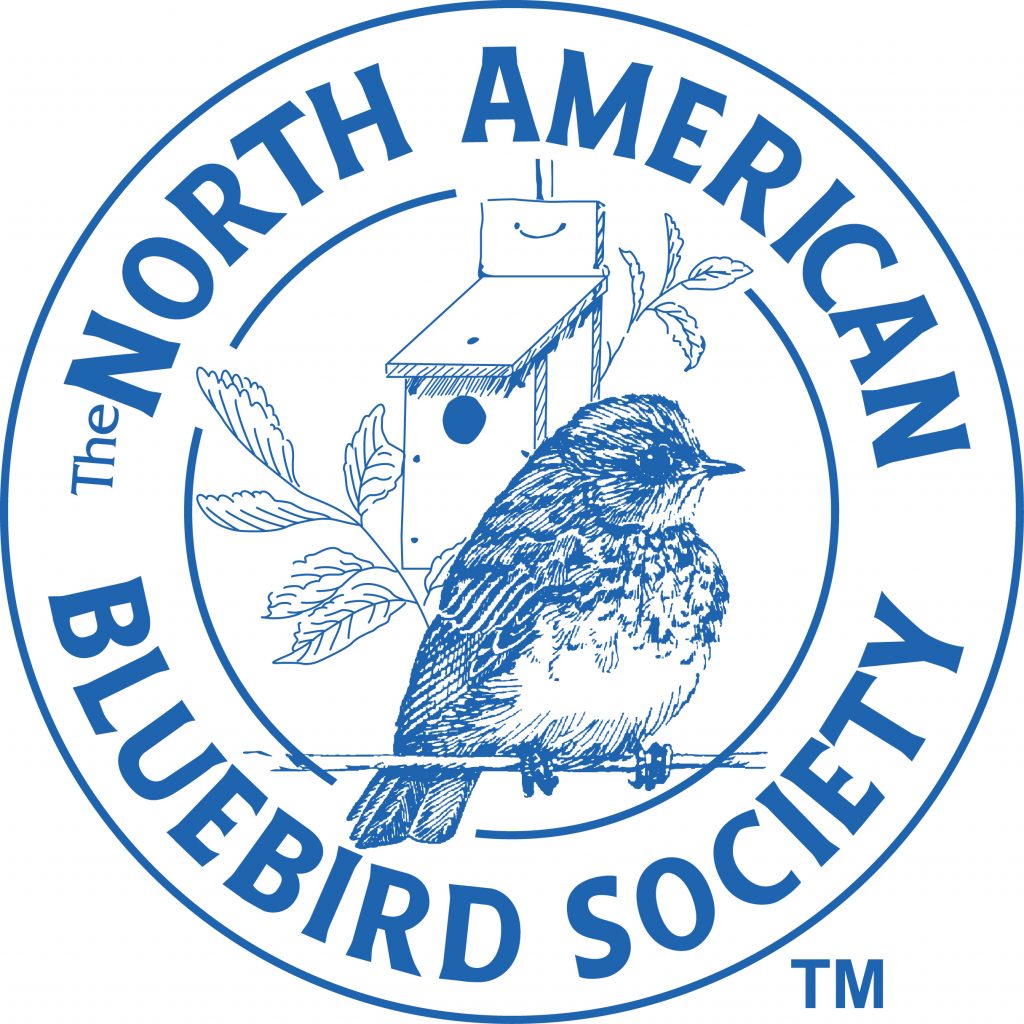Nest Quest Go!

Black-billed Cuckoo Nest
“There is nothing new in the world except the history you do not know.” —Harry S Truman
Stored on the second floor at the Cornell Lab of Ornithology sits a treasure-trove of bird-history we do not know. The Cornell Lab of Ornithology initiated the North American Nest Record Card Program in the 1960s and successfully administered the program for more than 30 years. Devoted citizen-scientists monitored nests so ornithologists could better understand the lives of birds throughout North America. Some readers may even have participated (thank you!).
Start Transcribing Cards Now
By 1999, the Lab had amassed more than 300,000 completed nest record cards, loaded with valuable information on the lives of hundreds of bird species. Data on these 4×6 historical records consists of details such as clutch size, hatched young, number of fledged young, the habitat birds utilized, the nest sites chosen, and cowbirds, or other competitors’, disruptive activities.

Anna's Hummingbird Nest
The effort to document nesting birds transitioned from the nest record-card program to the current NestWatch citizen-science project, and online data entry began. The modernization of citizen-science data has propelled ornithology into a new world of big data. Datasets from NestWatch have been used in numerous scientific publications such as this one on how changing environmental conditions are affecting the first egg dates of Eastern Bluebirds and Tree Swallows. There are, however, numerous undiscovered questions and answers hidden in our nest-record cards, if only the information was digitized, transcribed, and made readily available…

Tree Swallow Eggs
Enter Zooniverse, which has been called “The world’s largest and most popular platform for people-powered research. This research is made possible by volunteers — hundreds of thousands of people around the world who come together to assist professional researchers.” Thousands, upon thousands of images, historical records (such as nest cards), videos, and ephemera are uploaded by scientists who are trying to answer questions using the power of crowdsourced data-collection technology. Zooniverse has an easy to use platform that allows these records to be transcribed into useable data.

Zooniverse
Using Zooniverse is easy. After navigating to the website and creating a unique username and password, hundreds of transcription projects become available. Use the search feature to type in keywords of projects you may be interested in exploring. All Nest Quest Go! Projects can be found linked on our organization page. From here you can search the nest card projects we have available. Click on “classify” under the project of interest and have fun transcribing! We will be uploading several projects in the coming months. If you’d like to be contacted when new projects are added to Zooniverse, complete this form and we’ll add you to our Nest Quest Go! Updates list.
Once individual transcription projects are completed, we will download the data gleaned from the cards and upload it to NestWatch’s database. When the epic transcription project is done, and over 300,000 cards have been entered, we will almost double the total amount of available data in NestWatch.
“History is a vast early warning system.”—Norman Cousins

Tree Swallow Abundance Map
A major goal of this effort is to have a robust dataset on nesting birds across North America that researchers can use to better understand how bird populations are changing over time. As Norman Cousins alludes, changes in bird’s nesting behavior could help us better understand the challenges facing birds now and into the future. Help us reveal the history that could be acting as an early warning system, and empower scientists to discover long-term population trends.
Transcribing on Zooniverse is simple, fun, and provides an alternative pathway to participation in NestWatch, the nation’s largest nest-monitoring project. We launched our first public project in the early summer of 2019! Join us at Nest Quest Go!, and happy transcribing.
Sign-up here to be added to our eNews updates on Nest Quest Go!

Help Windows
If you are having trouble with our transcription project in Zooniverse, here are some tips:
- Revisit the tutorial until transcribing the cards becomes second nature.
- Each card has help text if you find yourself confused about how to transcribe a particular question.
- There is a Talk feature in Zooniverse that will allow you to ask other transcribers, and our team, questions.
- As always, feel free to email. Contact Nest Archivist Becca Rodomsky-Bish directly at rbr75@cornell.edu, if none of the above suggestions provide enough support.
Special thanks to the North American Bluebird Society for their generous donation in support of this work.

 Photo ©
Zooniverse
Photo ©
Zooniverse